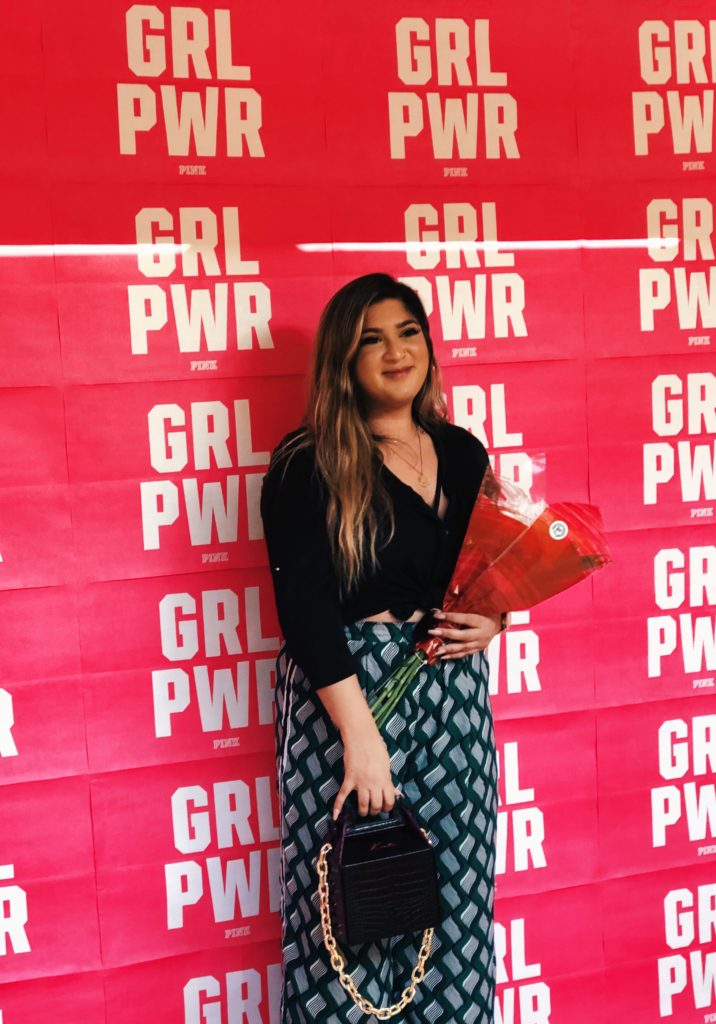I’ve wanted to write about living with imposter syndrome for a while now because I know it’s something that so many of us face yet don’t even realize. For the longest time I had no explanation for what I was feeling, and opted to just group the emotions in with my depression and anxiety. It wasn’t until I heard Michelle Obama talk about dealing with imposter syndrome that I realized it was its own isolated problem, and something that I definitely wasn’t alone in feeling. If any of this blog post resonates with you, I encourage you to read this Medium article on why you should embrace your imposter syndrome.
Imposter syndrome is characterized by feeling like your accomplishments are simply a fluke and that you’ve somehow cheated your way to where you are. While everyone can experience it, high-achieving women of color are especially prone to it (often because of very obvious yet hard to ignore reasons, like societal stereotypes and pressures). For the entirety of my life, I’ve had such a difficult time admitting to myself and those around me that I was successful or that I had accomplished something extraordinary. From something as small as getting an A on a test to something truly special like winning first place in a statewide competition, I would unconsciously make excuses for why I didn’t really earn or deserve it. Even as I write this, I’m once again doubting my proudest moments and my right to talk about them. There’s so many times when I’m surrounded by people who look to me for answers, and I have to keep reassuring myself that my answers are correct and come from a place of experience rather than luck. I typically don’t like to blame outside forces for how I’m feeling, but in this case it’s easy to see how societal pressures have played a huge role in making my success as a woman of color feel like it came from luck and not effort. As women, we are constantly told that we should expect life to be hard if we want nice things for ourselves. If someone gains something without visibly working hard for it, the value of it is discredited. This unspoken cultural norm made me second guess anything I got that didn’t make me put my blood, sweat, and tears into the process. When I take a step back and view my life from a rational standpoint, I’m reminded of how hard I truly worked for everything I’ve achieved, even if I didn’t show that effort to the world. However I’ve been conditioned to think that if I’m not suffering or cracking from the stress, I must not be working hard enough. I believe I’ve adapted to stress in a way that lets me thrive under it rather than be constantly reminded of its presence. The downside to this, however, is that when I achieve something without a couple mental breakdowns scattered throughout the process, I feel like I’ve somehow finessed life into just handing me my trophy rather than earning it. I’ve noticed that I only feel accomplished when the path to get there was laced with difficulties that I had to overcome. We need to remind ourselves that we can live a life of fulfillment and success without always having to overcome stress, judgement, self-doubt, and other pressures to get there. I’m not saying that they should be mutually exclusive, but we shouldn’t feel like a success is any less deserved just because it was gained without great difficulty. If anything, our generation should aim to be the first that is able to effectively balance our career, social, and personal life equally without all three crumbling to the floor. Who told us this wasn’t possible and why did we ever listen?
A few months ago, I sat on stage amongst other female business leaders as part of a GRL PWR Panel hosted by Victoria’s Secret. I didn’t go seeking out this opportunity, it was offered to me by those who felt I was qualified enough to give life advice to women in college. Yet as I got ready for this event, I stared in the mirror and questioned whether I even had the answers to how I got to where I am today. I walked into that theater not knowing if I could give the attendees anything worthwhile that would actually benefit their careers. I think of myself as a pretty confident person, but sometimes this doesn’t stop the voice in my head from feeding me quiet doubts that cloud my judgement. I didn’t even notice my imposter syndrome raging full force until I started answering questions and saw women nodding back at me in appreciation and agreement. It slowly dawned on me that duh, I actually did have all the knowledge of how I secured the successes that got me on that stage. To my left and right were two accomplished women both over the age of 30, yet I was able to give advice equally as helpful as theirs and tell a story that stood its own ground. After the event, multiple women approached me to tell me they resonated with my words and that what I had to say truly changed something in them. I came to the realization that what I thought was “being humble” was in reality just a faulty pipe left ignored which was now dripping self-doubt into everything I did. Not only am I committing a personal injustice when I allow myself to get comfortable with my imposter syndrome, I am also hindering my ability to help those around me.

It’s hard to feel like I deserve to talk about the things I’ve done in my life, but I try to remind myself that my successes are parts of me that I should be both able and proud to discuss with the world. Humility does not mean discounting your achievements or being unable to share them publicly. At the age of 22, I’m proud to say that I’ve served as President of two incredible business organizations, (basically) completed my Bachelor’s degree in spite of my not-so-great mental health, and started a company that aims to revolutionize higher education. I’ve finally started to accept that my accomplishments were well earned and that I don’t just keep “getting lucky”. I’ve started to ask myself why it’s easier for me to accept and discuss my cons than to be proud of and show off my pros. While I think that the answer to this is a mix of my own insecurities and a cultural norm of being overly humble, I know that recognizing and accepting it is a huge step towards alleviating it. It’s critical that women (and men) become aware of the inner dialogue that occurs when they achieve something, and especially when they are asked to be public about it. Often times we don’t even notice how much we put ourselves down and discredit the journey we’ve endured. I look forward to the day that I’m on stage accepting an award or giving a speech without wondering who screwed up and accidentally put me there. While I know that day is coming, for now I just remind myself each morning that I’m thankful to be who I am and that I recognize and appreciate all of the incredible qualities I possess.
The path to truly loving ourselves doesn’t start or end with just being confident, it is studded with a plethora of gifts that we need to be willing to give ourselves. The only way to find them, however, is to fully commit to go searching for them within yourself. I’ve worked for years to be able to have the privilege to accept a few of them, like knowing my self-worth and finding out what drives me in life. Whether you’re at a place right now where you’re able to believe it or not, know that you deserve every one of those gifts, too.
